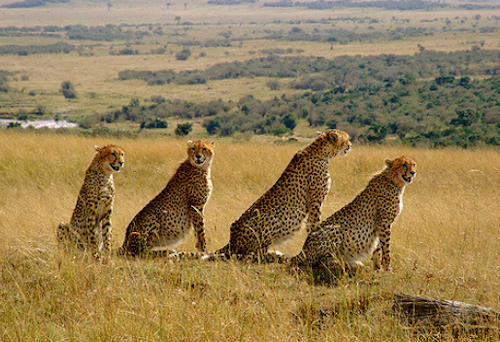Recommended News To Choosing Devil666 Sites
Wiki Article
What Transportation Arrangements Must I Be Aware Of When I Am On Vacation In Mombasa?
It is important to plan your trip to Mombasa Kenya by knowing the options for transportation. This will ensure an enjoyable and easy trip. Here are the most important considerations for transportation that you should take into account:
1. Getting to Mombasa
Moi International Airport serves as the principal airport in Mombasa. International and domestic flights are handled by the airport. Mombasa has many flights from and to major airlines.
By Train By Train Madaraka owned by Kenya Railways offers a modern train service that is easy to travel between Nairobi Kenya, Nairobi, and Mombasa.
Bus: A variety of bus companies provide services to and from Mombasa including Modern Coast and Coast Bus.
2. Local Transport in Mombasa
Taxis and ride-hailing services are readily available in abundance. Uber and Bolt are two ride-hailing services that operate in Mombasa. They provide easy ways to travel around.
The three-wheeled vehicle is an affordable and convenient way to get through the city. These are best for shorter journeys.
Matatus - These are minibuses for sharing that run along particular routes. They're the most commonly used form of transport. The buses are affordable but packed, and more uncomfortable.
Boda-bodas are available as well for those looking to travel quickly and easily especially for short distances, or in regions where there is significant traffic.
3. Car Rentals
You can hire cars at the airport and the city. Both international and local car rental firms offer a wide range of vehicles. Be aware of local driving regulations and traffic regulations.
Chauffeur-driven services are available for those who do not want to drive.
4. Ferry Services
Likoni Ferry The ferry connects Mombasa's Island to the city's southern mainland. It is essential for accessing the southern beaches and is free for pedestrians. Vehicles will be charged a fee.
5. Excursions and day trips
Tour Operators: A lot of tour operators offer guided tours to popular destinations such as Mombasa Marine National Park (Fort Jesus) as well as beaches nearby, such as Diani or Nyali. The majority of these tours include transportation.
Public transport: For self-employed travelers, matatus and tuktuks are great methods to get to the main places of interest.
6. Walking and cycling
Bicycle Rentals: Certain locations, particularly along coastal beaches, offer bicycle rentals to enjoy a leisurely ride.
Walking: Walking is a possibility in some areas of Mombasa particularly in the Old Town and along the beaches.
7. Tips for Travelers
Beware of public transport that is open late at night and only take taxis you can trust. Make sure you are aware of your possessions.
Negotiation is crucial for taxis and Tuk tuks. Meters are not utilized in the majority of cases.
Traffic: Expect a lot of traffic in the vicinity of the Likoni Ferry as well as in the central business districts during the peak hours.
If you are aware of the many transport options and have made all the arrangements required, your vacation will be hassle-free. Have a look at the top kenya day tours for more tips including kenya safari beach, safaris beach, travel tour companies, kenya beach and safari holiday, mombasa beach kenya, tours and safaris, travel & tours company, safari trips in africa, kenya africa travel, africa safaris and tours and more.

What Accommodation Considerations Do I Have To Be Aware Of When I Am Planning A Trip In Mombasa, Kenya?
A good hotel in Mombasa can ensure that your stay is comfortable and enjoyable. Here are a couple of important points to keep in mind:
1. Accommodation types
Mombasa offers a range of hotels from budget up to luxurious. Many hotels are located near the beach and provide facilities such as restaurants, pools, and tour services.
The resorts are more costly and generally offer a wide range of services such as all-inclusive accommodation, watersports and entertainment.
Guesthouses and B&Bs for a more personalized touch, stay in guesthouses or B&B establishments. They provide a homelier feel and local hospitality.
Airbnb Vacation Rentals offer flexibility and are cost-effective for groups that are staying longer or with larger numbers.
Hostels: Budget-conscious travelers might prefer hostels. They provide basic amenities as well as the chance to connect with fellow travelers.
2. Location
Choose accommodation near tourist attractions. The most popular areas are Nyali Beach, Diani Beach and the city centre close to Fort Jesus.
If you want to visit various parts of Mombasa take into consideration whether you can access public transportation or the proximity of main roads.
Security: Check the security rating of the area that your lodging is located. Stick to well-known and reputable areas.
3. Amenities and Services
Internet Access: Make sure your hotel is equipped with high-quality WiFi. This is especially important when you are always in motion.
Dining Options: See whether the hotel has restaurants on site or eating options close by.
Recreational Facilities: If this is important to you, then consider amenities such as spas, pools, or fitness centers.
Family-friendly features When you travel with children, you should think about accommodations that have children's club and babysitting.
4. Reviews and ratings
Guest Reviews: Read the reviews on sites such as TripAdvisor, Booking.com, or Google to gain an understanding of what other travelers have experienced. others who have traveled.
Search for hotels that have excellent scores regarding cleanliness as well as service.
5. Budget
Budget: Set a budget and look for accommodations that fit within your budget. Prices differ based on location, type and the time.
Hidden Fees: Pay attention to any additional fees like fees for parking and resort charges.
6. Cultural Experience
Local or international? Decide if your preference is to stay in a worldwide hotel chain or an accommodation that has an ambiance that is more local.
Community-based tourism: You can support your local community by opting for eco-lodges. These types of accommodations offer deeper cultural immersion.
7. Booking Flexibility
In case your plans change, you should check the cancellation policies and flexibility.
Book using reputable booking platforms with security, customer support, payment options and 24/7 customer support.
8. Special Requirements
Accessibility: Ensure that the accommodation is suitable for any particular needs such as wheelchair access or dietary needs.
Check the policy on pets of the hotel if you are traveling with pets.
9. Security
Secure Environment: Select a hotel with good security measures like 24-hour reception, security personnel and secure parking.
Personal belongings: Make sure you have safes in your room or secure storage options for your valuables.
If you take these points into consideration, you can find the perfect accommodation that meets your requirements and improves your holiday experience in Mombasa. Follow the top mombasa old town for site recommendations including kenya safaris and tours, safari and tours, tour firms in kenya, tour agents in kenya, african safari africa, safar kenya, mombasa safaris kenya, tours and safaris in kenya, safari mombasa kenya, mombasa tours and more.

What Are My Responsibilities As An Environmentalist If I'm In Mombasa Kenya?
To preserve the natural beauty and richness of Mombasa in Kenya It is essential to be eco-conscious. Here are some key environmental responsibilities to consider:
1. Sustainable Accommodation
Eco-friendly Hotel: Choose hotels that have a commitment to sustainability. Find eco-labels, such as Eco-Tourism Kenya.
Conservation of Resources: Participate in hotel initiatives aimed at conserving electricity and water. Reuse linens, towels and towels. Also, turn off the air conditioner and lights when not needed.
2. Responsible Wildlife Viewing
Respect wildlife. Do not disturb animals by keeping an area of safety between you and them. Be sure to follow the rules provided by your guide on the tour.
Do not feed wildlife. Feeding animals could disrupt their natural diet.
Leave No Trace: Do not litter in parks or wildlife reserves. Be sure to take all trash along, and dispose it properly.
3. Plastic Reduction
Minimize Plastic Use: Avoid single-use plastics. Keep a water bottle that is reusable as well as a shopping bag and tools.
Support Local Initiatives: Join in local beach clean-up efforts as well as organizations that work to reduce the amount of plastic pollution.
4. Water Conservation
Use Water Wisely: Mombasa experiences water scarcity issues. Showers should be shorter, and taps shut off when not in use.
Eco-Friendly Product: Minimize water pollution by using biodegradable, sustainable products.
5. Energy Conservation
Reduce Energy Consumption - Limit air conditioning use and unplug electronics when not being used.
Support Renewable Energy Choose accommodations and tour operators which use renewable energy.
6. Sustainable Transportation
Reduce your carbon footprint using public transportation, like buses or matatus, whenever it is possible.
Think about eco-friendly alternatives like renting a bike or walking short distances. Certain areas have eco-friendly tuk-tuks.
7. Helping to support local economies
Support local businesses: Contribute to the local economy by purchasing souvenirs, food and arts and crafts from local merchants.
Fair Trade: Choose products that have been certified fair trade to ensure that local producers are fairly compensated.
8. Environmental Education
Learn and share information: Inform yourself about your local environment and conservation efforts. Share with others your findings to raise awareness.
Respect local cultures. Understand and respect customs and local practices which are connected to the conservation of environmental resources.
9. Marine Conservation
Scuba and Snorkeling Be cautious not to step onto coral reefs. Use sunscreen that is safe for reefs and non-toxic to safeguard marine wildlife.
Avoid dumping garbage into the ocean. Participate in or support programs for marine conservation.
10. Ethical Souvenirs
Beware of products that contain wildlife Avoid purchasing products that are made from endangered species, such as tortoiseshell and ivory.
Sustainable Materials - Choose products made from recycled or recyclable materials.
11. Take part in conservation Activities
Volunteering: Take part in local conservation projects or community-based tourism initiatives.
Help NGOs: Give to or support local NGOs as well as conservation groups working to safeguard the environment.
12. Responsible Travel Practices
Small group sizes are recommended to reduce the impact on the environment.
Eco-Tours Select tour operators that have eco-friendly policies and a commitment to sustainable development.
When you keep these responsibilities to the environment in mind, you can aid in the conservation of Mombasa's natural resources and ensure that the beauty and diversity of the region are maintained for the future. Have a look at the best kenya safaris Afrika for site recommendations including kenya mombasa holiday packages, mombasa beach kenya, safaris beach, tour company, tour agents in kenya, tours and safaris, kenya beach and safari holiday, kenya safari beach, trips to kenya, kenya africa travel and more.
